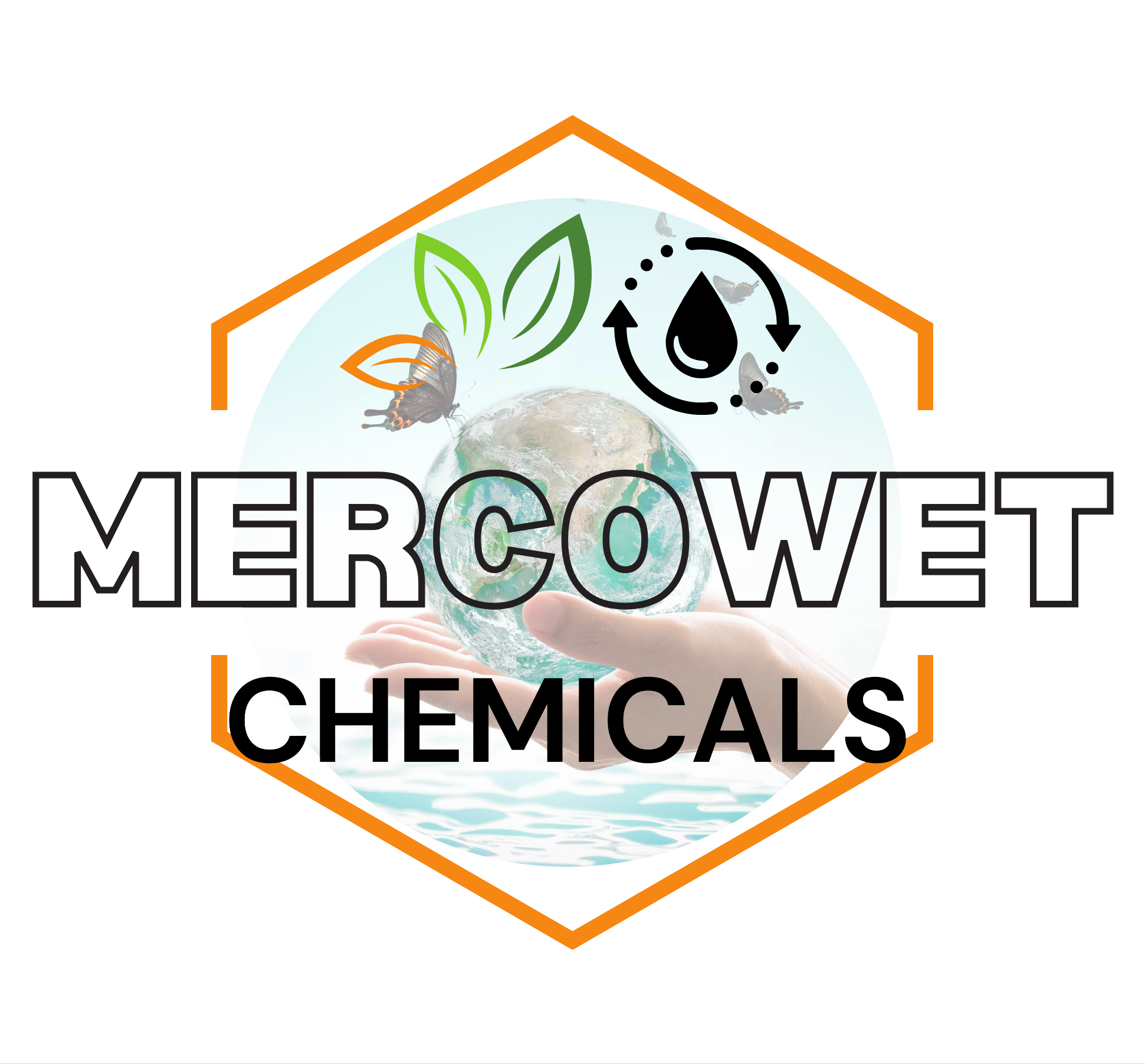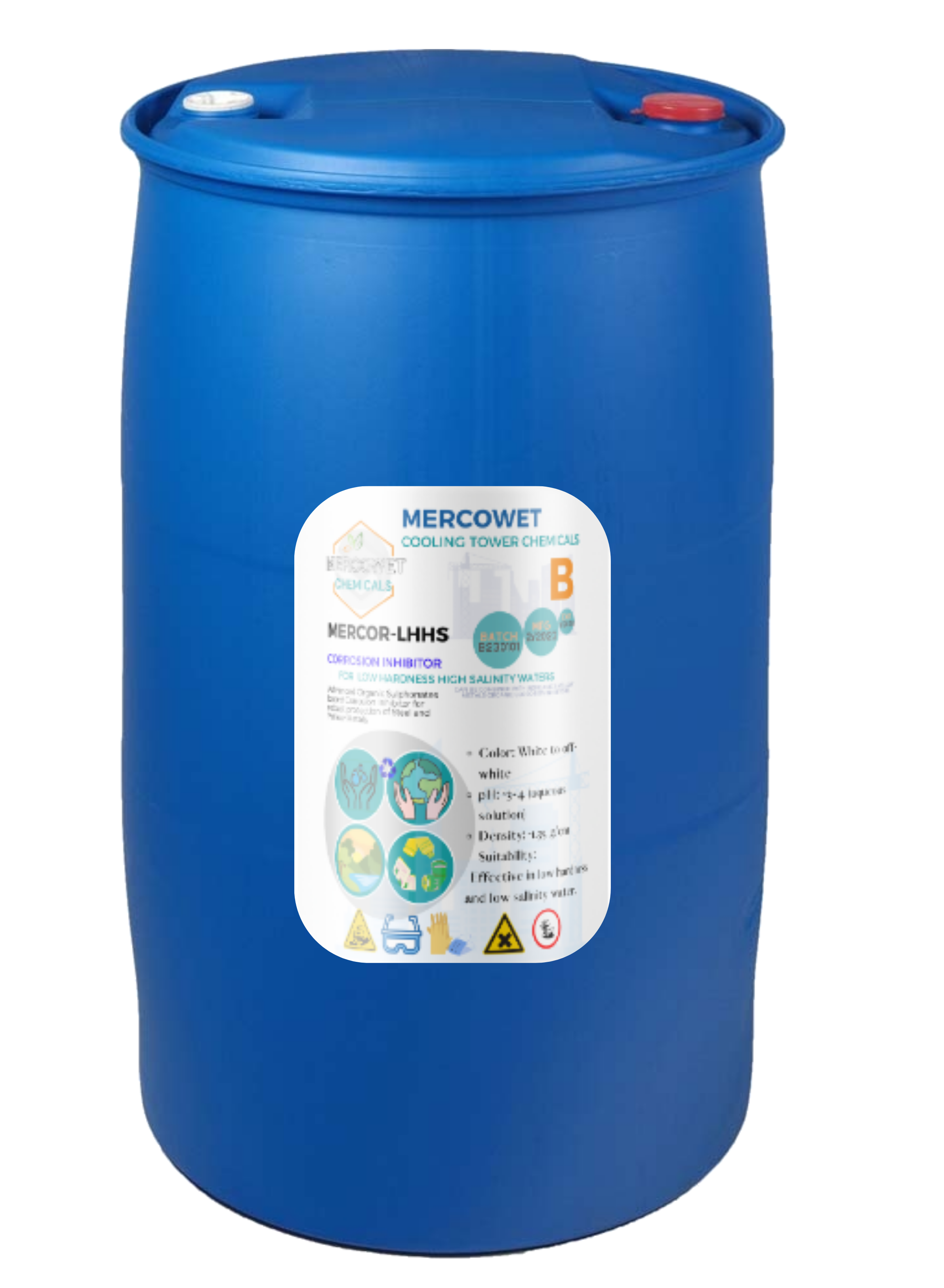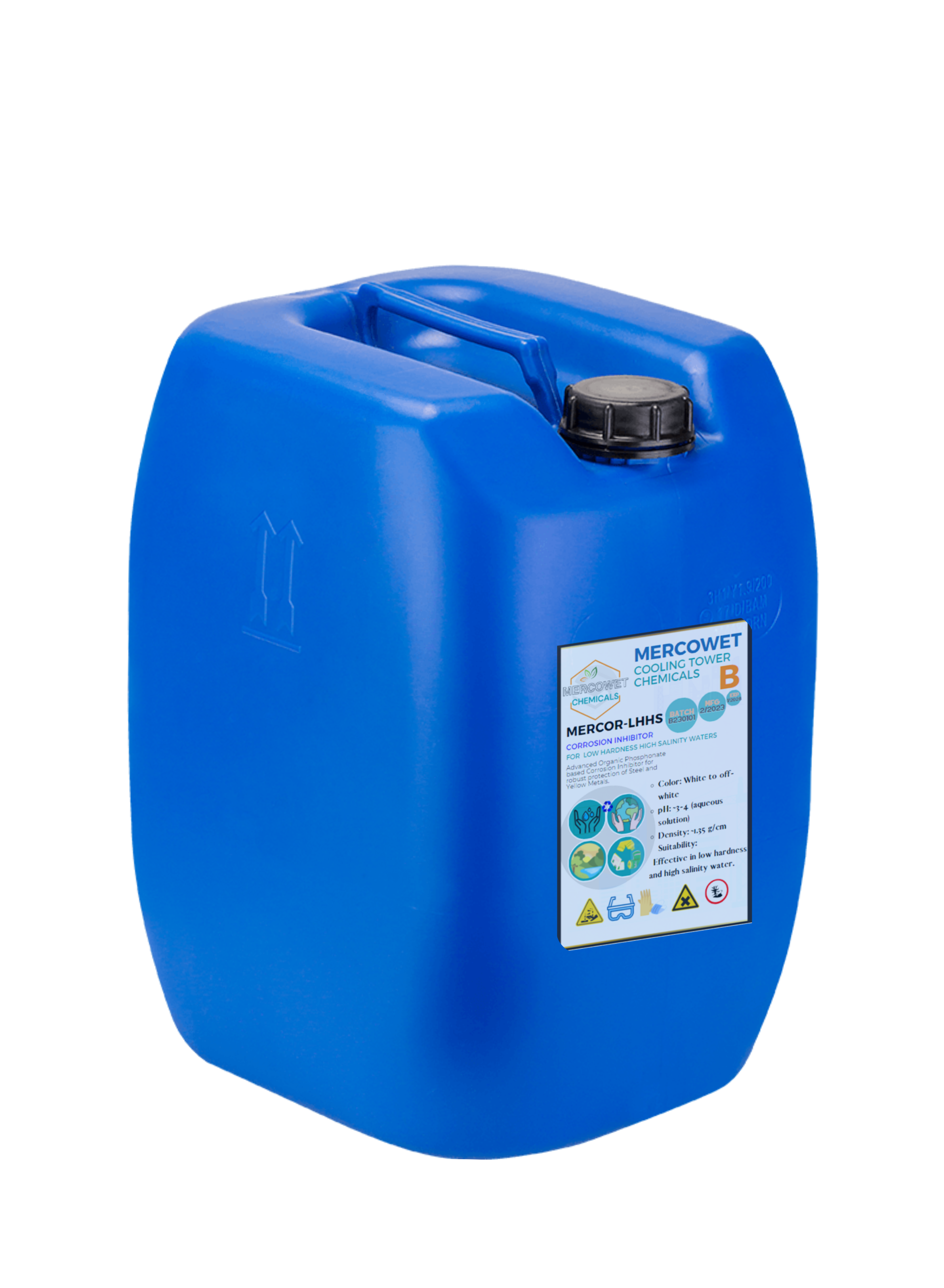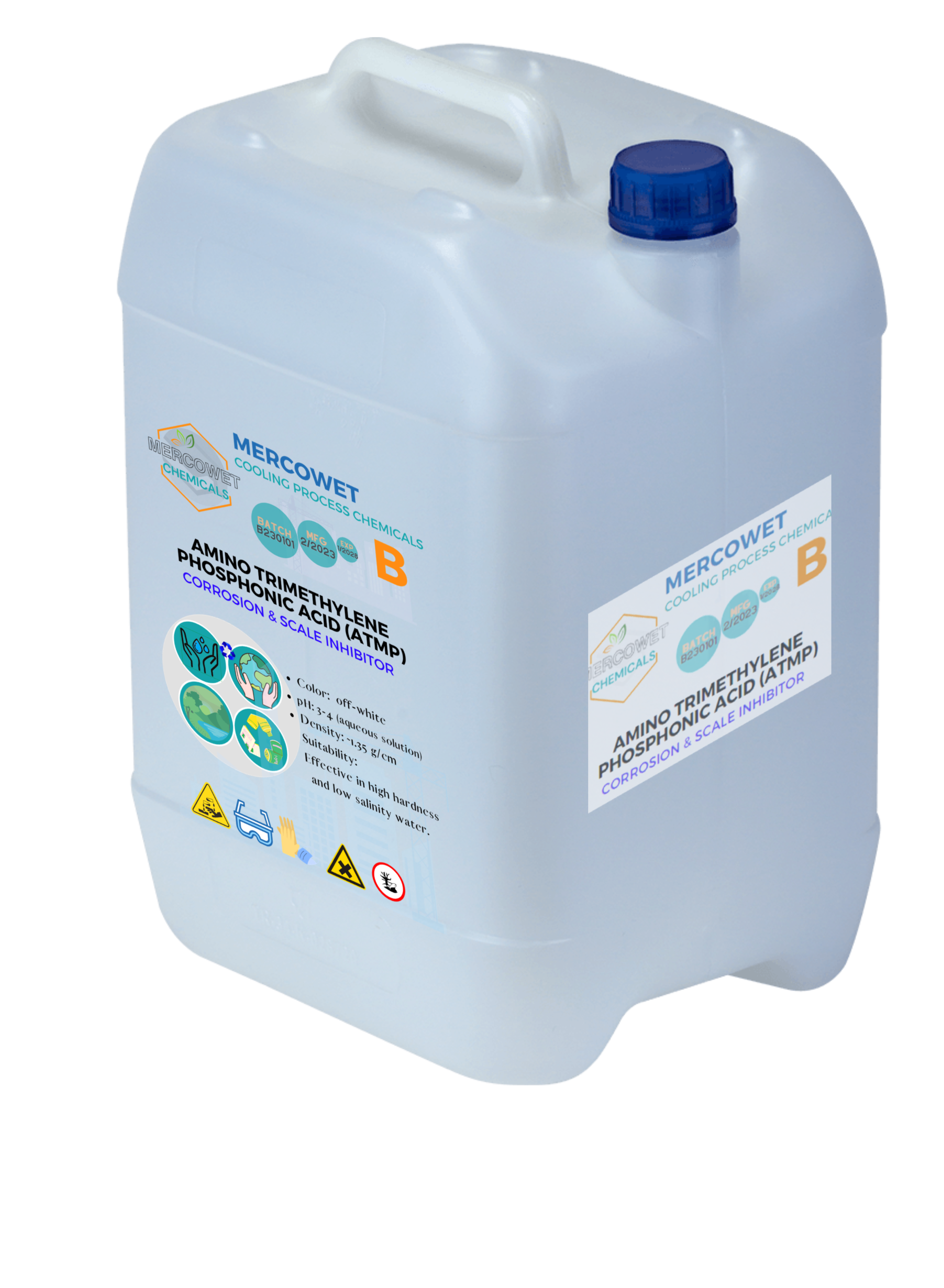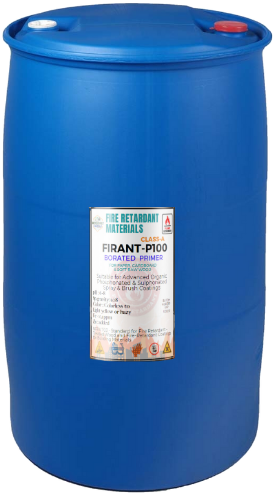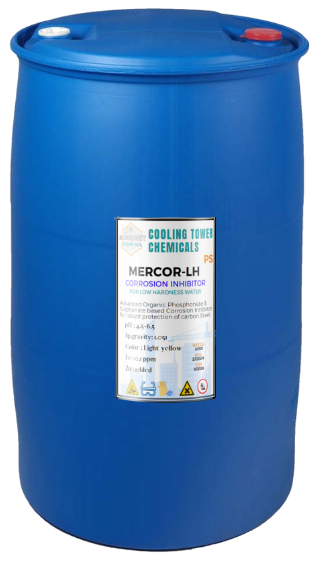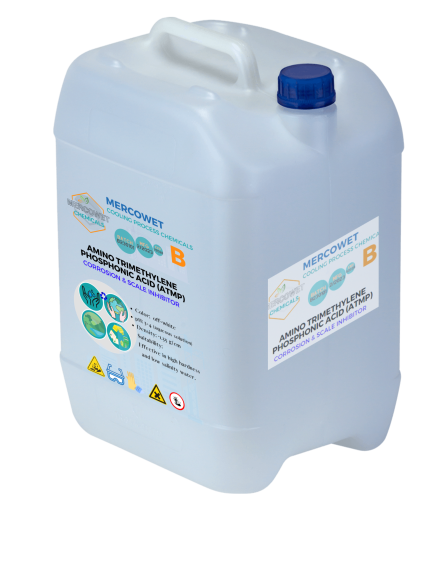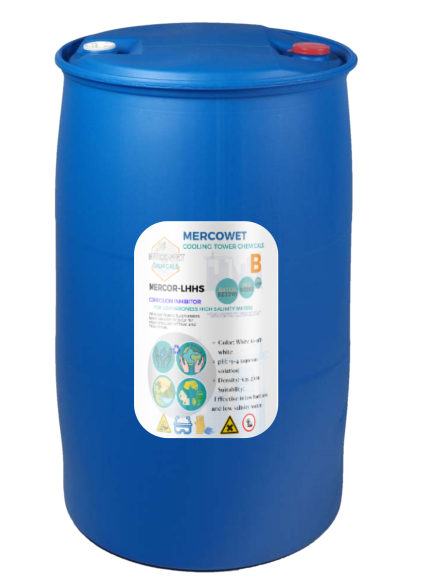- MercoWet Technologies
- Home
Water Treatment Chemicals
The sulfonate-based corrosion inhibitors offer versatile protection across various metals and water types, making them valuable additives for preserving the integrity and longevity of equipment and infrastructure subjected to different environmental conditions. However, specific compatibility tests and adherence to recommended usage guidelines are crucial for optimal performance.
Importance of Water Treatment for Process and Cooling Tower Water:
Equipment Efficiency: Water used in industrial processes and cooling towers often contains impurities and minerals that can cause scaling, corrosion, and fouling within equipment. Water treatment helps prevent these issues, ensuring optimal heat transfer efficiency and equipment performance.
Corrosion Prevention: Untreated water can corrode metal surfaces within systems, leading to equipment damage and leaks. Water treatment involves corrosion inhibitors that protect system components, extending their lifespan and reducing maintenance costs.
Scale and Deposit Control: Minerals present in water can form scale deposits on heat exchangers, pipes, and cooling tower fill. Water treatment solutions mitigate scale formation, preventing blockages and maintaining system efficiency.
Microbial Control: Cooling towers are prone to bacterial growth, which can lead to biofilm formation, fouling, and health hazards. Water treatment involves biocides or disinfectants that control microbial growth, preserving water quality and preventing disease transmission.
Legionella Prevention: Effective water treatment is crucial in preventing the growth of Legionella bacteria in cooling towers, which can cause Legionnaires’ disease. Proper treatment reduces the risk of bacterial proliferation and subsequent health hazards.
Water Conservation: Proper treatment and management of process and cooling tower water reduce the need for frequent water replacements. Recycling and treating water contribute to sustainable practices and conservation efforts.
Compliance and Regulation: Many industries must adhere to environmental regulations and standards for water quality. Water treatment ensures compliance with these regulations, avoiding fines and legal issues.
- Shop Pages
- About us
- Contact us
